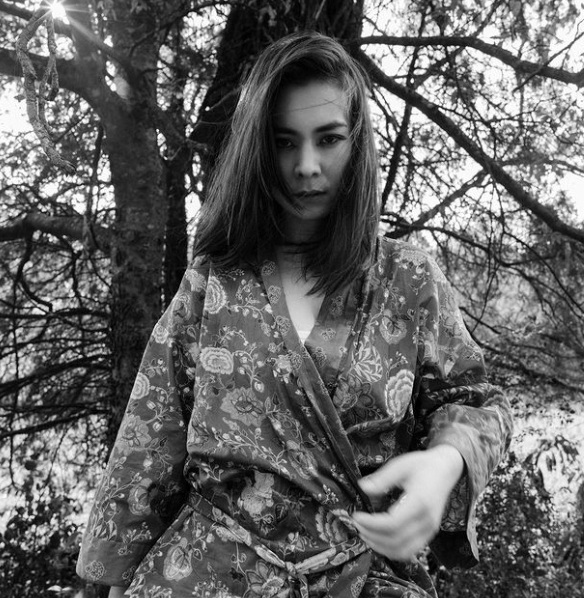★★★★☆
Come for the heart-wrenching lyrics that make you audibly go “ow” and stay for the beautiful arrangement that makes Mitski’s seventh album one of her best releases to date. American singer and songwriter Mitski’s album “The Land Is Inhospitable and So Are We” (2023) may seem like desolate lamentation, but the listening experience is actually the complete opposite — an intimate confessional laced with guitar strums and an aching hope for a better tomorrow.
This album, which is Mitski’s newest release, follows the release of her sixth album “Laurel Hell,” an eclectic indie-pop collection of gut-wrenching realizations and romantic tribulations. However, Mitski takes a more intimate approach with her newest album.
Synthesizers and 80s disco-inflections of the past are swapped for warm country sounds that evoke the Western landscape. She also holds a hallmark theme of loneliness throughout the album.
“You’re my best friend, now I’ve no one to tell / How I lost my best friend,” she sings to the vast emptiness in her song “The Frost.”
Despite the isolation and the guarded walls she sings about, Mitski reveals how she yearns for connection. In “Bug Like an Angel,” she sings about how she drinks from her nearly empty glass because “sometimes, a drink feels like a family.”
“The Deal” details her journey to find someone “to take this soul” because she “can’t bear to keep it.” Along the same lines, in “I’m Your Man,” a melancholy dirge for a failed relationship, Mitski finds herself mourning for her lover and what was once theirs; she seems resigned to her fate as she confesses that: “No one will ever love me like you again / So, when you leave me, I should die.”
Deep in this barren American landscape, it seems that Mitski is able to stumble across the celestial and divine in the most unlikely moments. “Star” and “Heaven,” which Mitski originally released as two companion singles, feel like two parts of a fated encounter.
“Heaven” is a lush ballad in which Mitski and Mother Earth merge. She croons about a lover and their blissful intimacies with comparisons to murmuring brooks and bent willows. The song feels like you stumbled across a private performance, something so devout that it was only meant for their ears and makes you blush. As the track fades into orchestral remnants, the love makes you ascend and converts you to a believer.
On the other side of this sacred romance, though, is the fizzled-out aftermath and how Mitski proceeds from heartbreak. “Star” begins with another fateful meeting, with the first verse invoking the cosmological imagery of “The Fool” and “The Lovers” tarot cards, and true partners coming together in a union. The track then unravels into an ode to the former connection, where Mitski consoles herself using the constellations as a means of hope.
The chorus recalls some of Mitski’s other songs in the album where she also uses the stars to memorialize her affections. “My Love Mine All Mine” is a lunar plea, asking if the moon can cement her love long after she inevitably dies — because to her, love is the most important facet of her existence.
In “Carry Me Out,” from her third album “Bury Me At Makeout Creek,” she talks about speaking to her lover across the distance that separates them, the two of them united in the “stars.” In Mitski’s mind, love is what both sustains and haunts her. It contorts her very being, either in pleasure or in the direction of the bottle when in the midst of suffering and drives her to embrace it in spite of the hardships love may bring along with it.
Although this album is devoid of the piercing angst and painfully relatable sadness that made Mitski a household name in the world of indie pop, it is cosmically complex. The soundscape that Mitski cultivates takes the listener westward and forces them to confront the pillar of our humanity: love. Love seems all-encompassing, from the earth that Mitski walks on to the celestial skies in which she seeks solace and the flurries of memories she revisits.
There’s a sense of sanctity in the inhospitable land, too. Somehow, Mitski is able to find tender beauty among the barking dogs and the bargains that do away with her soul, arching us back towards love and love again.














